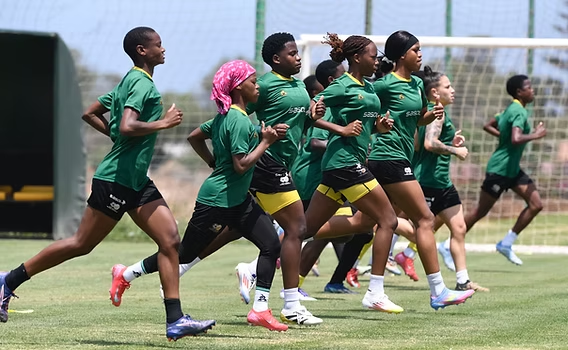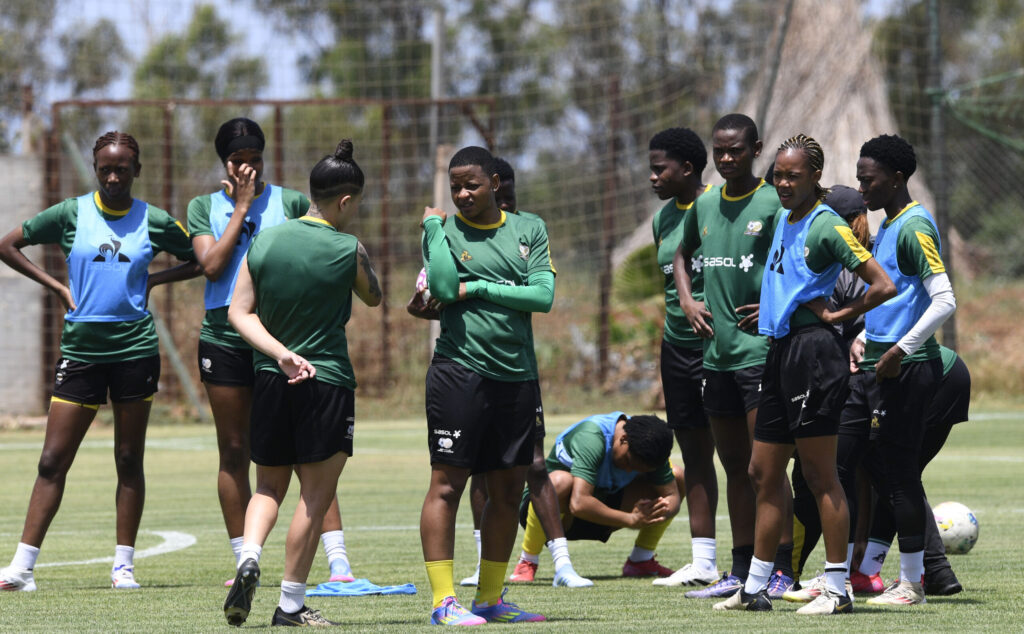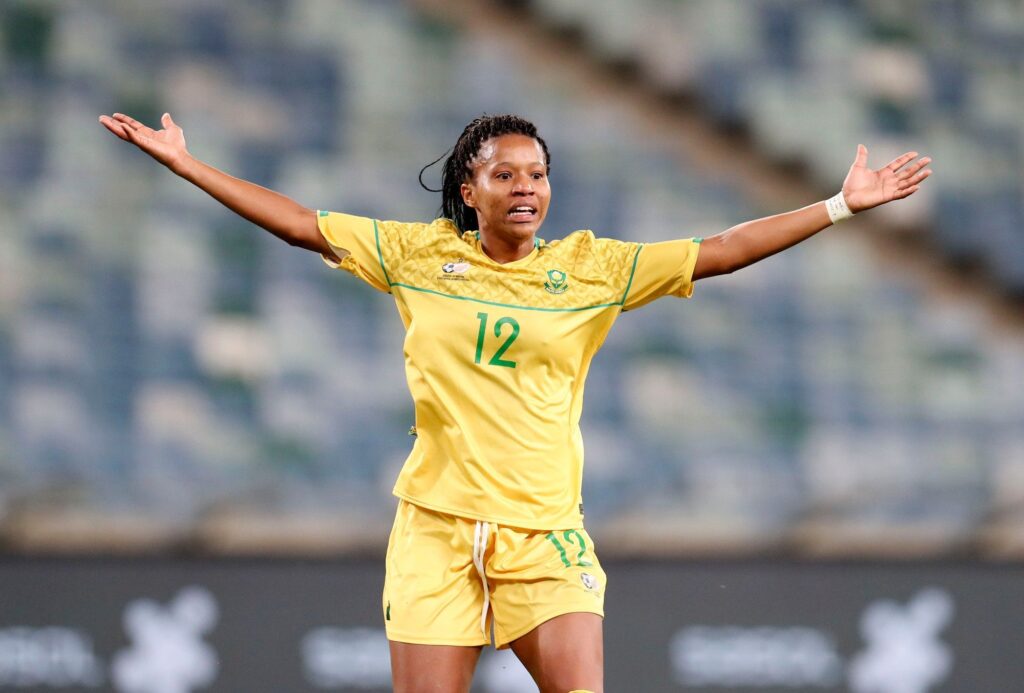The South African national women’s football team arrived in Morocco on Wednesday ahead of the tournament, which kicks off on 5 July 2025.
The squad’s preparations have been overshadowed by off-field turmoil. Star striker Thembi Kgatlana has withdrawn from the squad, while coach Desiree Ellis remains in charge despite her contract expiring more than 14 months ago. On Friday, players boycotted their second training session, citing grievances over unpaid allowances for national team camps in April and June.

Banyana Banyana, sponsored by Sasol, are South Africa’s most successful national team in recent years. Sasol’s support has been instrumental in growing women’s football, creating opportunities for players to earn scholarships and sign professional contracts overseas. Many national team players have emerged from the Sasol League, which has become a key platform for talent development.
Ellis, a four-time CAF Women’s Coach of the Year and holder of an honorary doctorate from the Cape Peninsula University of Technology, has led Banyana Banyana since 2016. Under her guidance, the team has qualified for two FIFA Women’s World Cups, including a historic run to the Round of 16 in 2023. Despite uncertainty around her contract—described as an “administration issue” by SAFA President Danny Jordaan—Ellis remains with the team in Morocco. SAFA CEO Lydia Monyepao has said a contract is in place but that the association is awaiting advice from its technical committee on a reappointment.

The absence of Kgatlana, one of the continent’s top talents, has raised significant questions about Banyana’s prospects. The 2018 Player of the Tournament and top goal scorer at the Africa Women’s Cup of Nations in Ghana has scored 31 goals in 82 appearances for South Africa. She made history as the first South African to score at a FIFA Women’s World Cup in 2019 and netted the decisive goal in Banyana’s first-ever World Cup win—a 3-2 victory over Italy in 2023 that secured a spot in the knockout stages.

Her decision to withdraw has fueled speculation about internal tensions, financial issues, and dissatisfaction with SAFA’s handling of women’s football. In recent years, Banyana Banyana have clashed with the association over matters of pay and treatment, including a public dispute before the 2023 FIFA Women’s World Cup in Australia and New Zealand.

Further unrest surfaced on Friday when the squad refused to train, demanding payments owed for previous camps. Player Jermaine Seoposenwe has hinted she may leave the team after the tournament. Nkululeko Nkewu from iDiski Times expressed frustration with ongoing financial issues and accused SAFA of failing women’s football. “Hollywoodbets Super League clubs were not paid their money. Last season, the sponsors were not happy, and SAFA kept on failing women in sports,” Mr. Nkewu said. He claimed that instead of resolving the issues and compensating players fairly, SAFA “will demonize whoever came up with the idea of striking.”
As Banyana Banyana prepares to defend their WAFCON crown, questions remain over whether administrative challenges, financial disputes, and the absence of key players could derail their title defense. While the team has demonstrated resilience in past crises, unresolved tensions risk undermining their chances just as African women’s football continues to gain momentum on the global stage.




